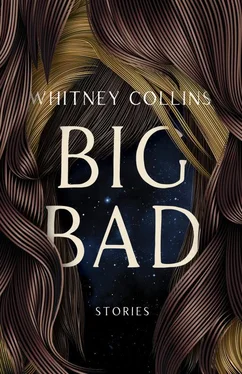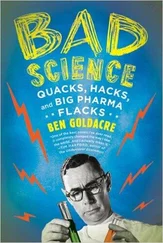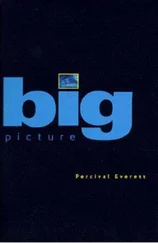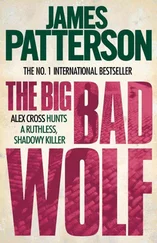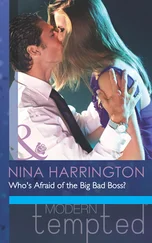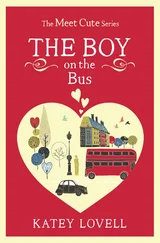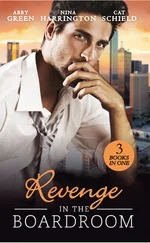You save yourself or you remain unsaved.
—ALICE SEBOLD
ON TUESDAY, FRANKIE’S father took her two places against his better judgment. The first was to see her premature brothers at the Our Lady of Peace NICU. Three days prior, and sixty days too early, James and Jasper had slipped out of Frankie’s mother like a pair of feeble insects that doctors promptly secured under glass for observation both scientific and sacred. In the ensuing emergency, Frankie’s father, unable to locate a sitter, deposited his six-year-old daughter on the foot of his blind mother’s nursing home bed with a naked baby doll and a box of Sun-Maid raisins.
For two days, Frankie watched The Young and the Restless and Who Wants to Be a Millionaire? from a vinyl recliner, eating saltines and applesauce and drinking Boost, while her grandmother’s friends leaned on walkers in the doorway, admiring her like a misplaced peacock. “She’s a prodigy,” the grandmother claimed. “She’s in first grade and can balance a checkbook. She knows all the Canadian provinces.”
Every so often, the grandmother would run her fingers over Frankie’s soft face, as if her eyebrows were made of Braille, and tell her the baby brothers would probably die. “They’re like worms on a summer sidewalk, child. They don’t stand a chance in the heat of this world.” To Frankie, this honesty felt so much like affection, she sometimes asked her grandmother to repeat herself, which the grandmother did with gusto, adding details about Frankie’s father and her Uncle Eric. How they weren’t born early, but they’d been stuck together at the hip and the doctors had to slice the grandmother open to remove them. “I was the one who almost died,” she said. “Those boys were laying inside me, side by side, like a butterfly. Your father. He got the hip. Eric, he never was right.” At this, the grandmother patted Frankie’s face and body with her hands. “Looks like you’ll make it,” she said. “You’re one of the lucky ones.” Then Frankie, full of herself, excused herself to faux tap-dance in the hallway for nickels, making four dollars in one commercial break—enough to buy just one brother something in the hospital gift shop.
Back in the recliner, Frankie covered herself with an afghan that smelled of menthol. She saw that her grandmother was on the verge of sleep, so she asked, “Did it hurt when they pulled the babies out of you?”
Her grandmother jolted, frowned, then nodded. “It was hell,” she quietly moaned. “Oh, child. Let me tell you: I know hell.”
Frankie thought about this in the dark, while the mute television featured a man selling electric grills that nothing stuck to, not even cheese. Frankie knew a little about hell. About how, in October, she’d turn seven. How then she’d be considered responsible for everything she did and everything she thought. How the week before Halloween, Father Greg would be waiting for her and her classmates in the church booth to tell him everything they had ever done wrong.
Frankie had already started the list in her mind. She had stolen a pack of Juicy Fruit from the drugstore when she was four. She had dropped one of her mother’s diamond earrings down the drain (on accident) and never told (on purpose) when she was five. And once, just a month ago, when her mother was too pregnant to get off the park bench, Frankie had come across a boy inside the playground tunnel beating a rock against a limp chipmunk. When he offered her a turn, she said okay, but made the mistake of wrapping her hand completely around the rock so that when she hit the chipmunk, her knuckles could feel its bones break, could feel how it was still warm. Frankie had decided to only mention the gum to Father Greg, which would be another sin. The more Frankie thought about it, the more she couldn’t see a way to keep herself out of hell. But she fell asleep regardless.
On Tuesday, the nursing home manager came to the grandmother’s room. He stood in the doorway and explained that Frankie, by law, had to leave. Frankie gathered up her things, but not before noticing that the toes of the man’s shoes were wrapped in black tape to hold the soles on. In his office, he called her father and said, “Either you or the police can come pick her up.”
*
Last November, to everyone’s surprise, Uncle Eric called to invite Frankie and her parents to Thanksgiving dinner at his house.
“He says your mother will be there with her nurse,” Frankie’s mother said to Frankie’s father. “Maybe he’s finally trying.”
“Right,” her father said. “Don’t hold your breath.”
On the day of the party, Frankie’s mother dressed Frankie in her brown, sashed dress and her gray wool coat with the brass buttons. Frankie had only met her uncle once before, at her grandfather’s funeral. She remembered he’d stood under a pine tree away from the crowd, holding an umbrella even though it wasn’t raining.
“Will any kids be there?” Frankie asked.
“No,” her mother said. “Just you.”
When they arrived at his house, Frankie could barely contain herself. The bungalow was painted bright purple with an orange front door, and on the roof, attached to the chimney with duct tape, was a faded plastic Santa Claus.
“Jesus,” her father sighed.
“David,” her mother said.
For dinner, instead of turkey and stuffing and a normal-sized pumpkin pie that fed eight people, Eric served each guest a tiny roasted quail, and minuscule mounds of sweet potatoes scooped with a melon baller, and dwarfed apple tarts the size of poker chips. In her whole young life, Frankie had never been so delighted. There were ropes of blue tinsel over every doorway and glitter sprinkled on the tablecloth and six strangers at the meal who were of no relation to Frankie or her parents or her blind grandmother, but who loved on Frankie more than she’d ever been loved on before—strangers who looked like women but talked like men and smoked cigarettes as long as chopsticks and cried every time a song came on the radio.
“The dishes,” Eric announced at dinner, pinching up a teacup for everyone to see, “are antique doll’s china from Russia.”
Frankie inspected her plate with awe. The dinner guests, the ones who weren’t family, gasped.
“They belonged to Anna Rasputin,” Uncle Eric said. “Anna Goddamn Rasputin. That’s how much I love you all.”
Frankie ate four apple tarts and eleven scoops of sweet potatoes. Her quail was so precious she wrapped it in her napkin then excused herself to the bathroom. She found her winter coat in the hallway and placed the bird in its inner silk pocket.
Frankie noticed her father did not eat. Frankie noticed her grandmother’s nurse excused the grandmother from the dining table and fed her from a paper plate in the living room. Frankie noticed her mother spent the whole meal watching Frankie’s father in the same way she watched Frankie when she ran a fever. Frankie noticed Uncle Eric noticed none of this.
After dinner, Uncle Eric took Frankie upstairs to his bedroom where he showed her a red toddler-sized piano. “We must bring this downstairs,” he said, flushed and wide-eyed. “We’ve got to keep the teeny-tiny theme going.” Frankie nodded in agreement. “What do you play, Frankie? Für Elise? Please tell me you play Für Elise .”
Frankie was worried; she only knew “The Mayflower Song.” “I only know ‘The Mayflower Song,’” she said.
Читать дальше
